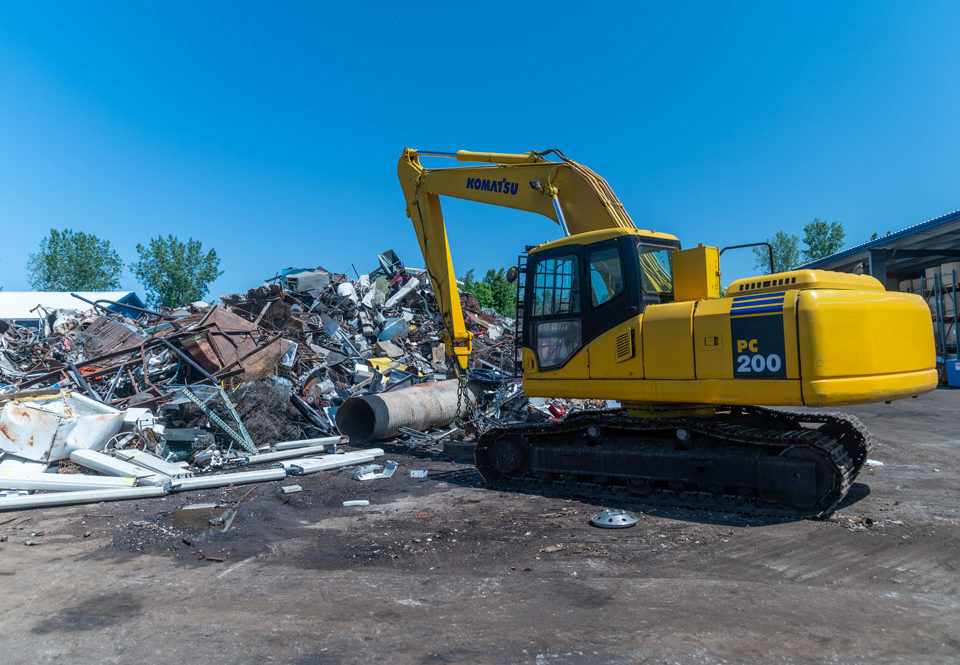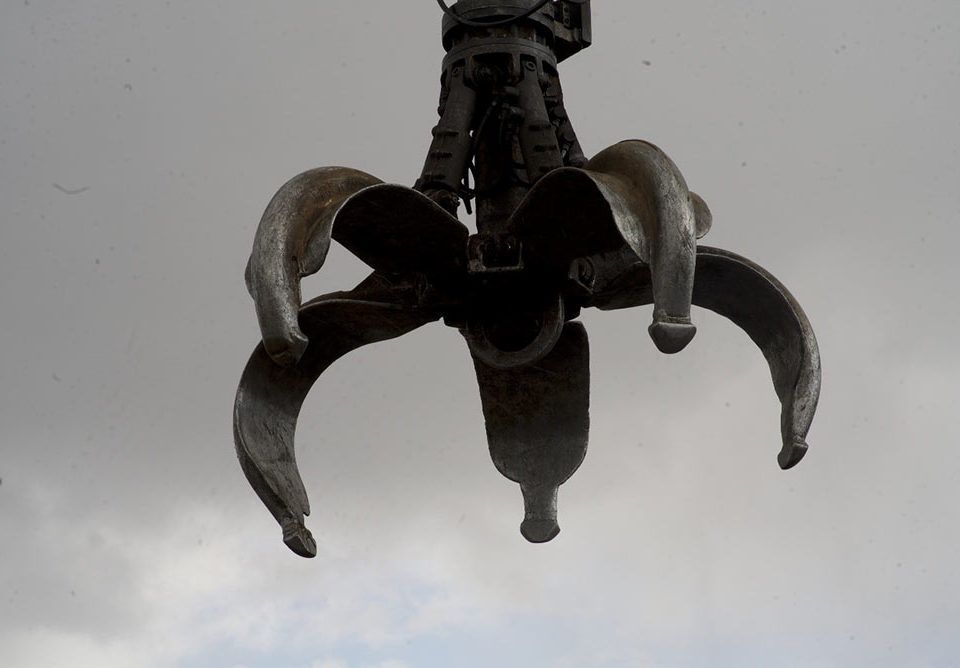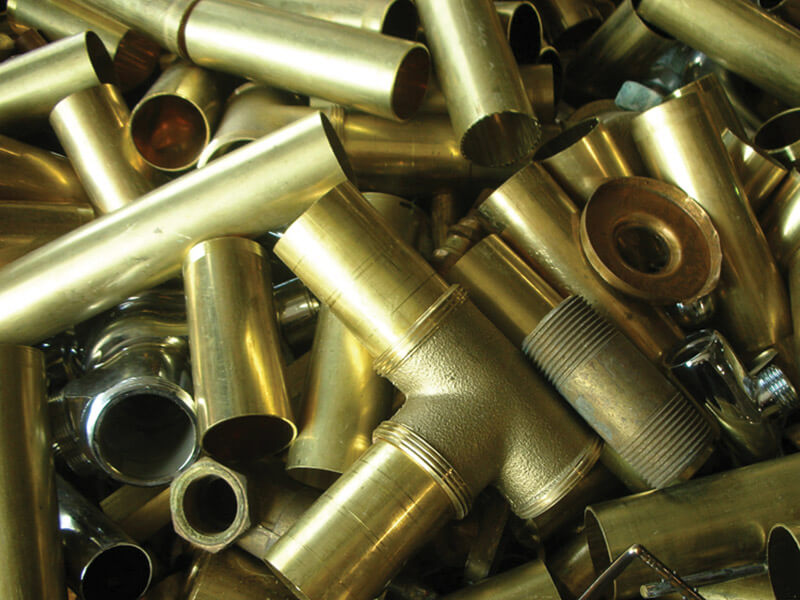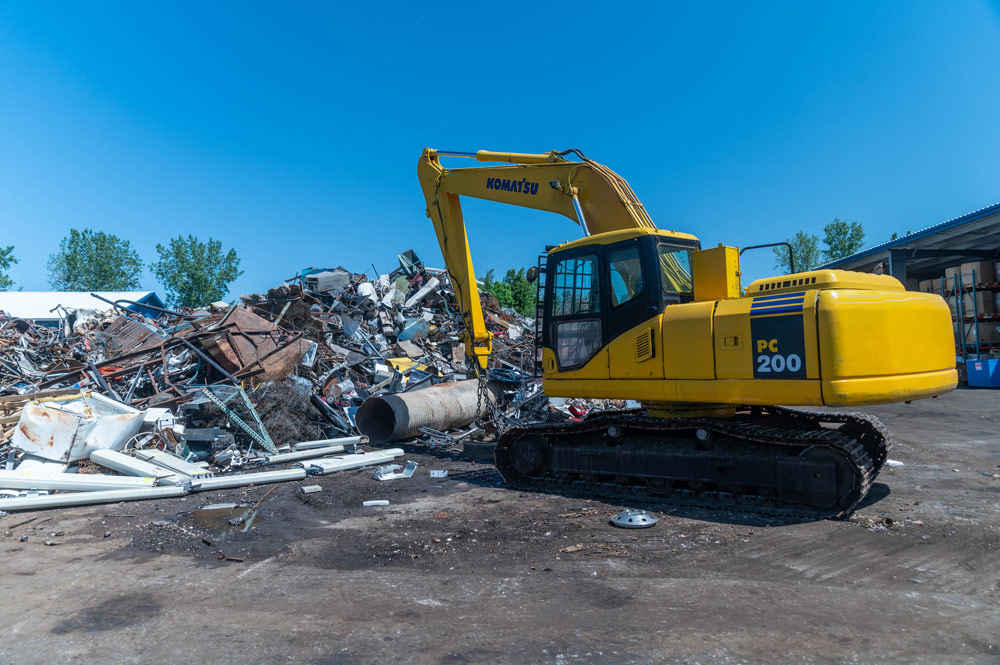
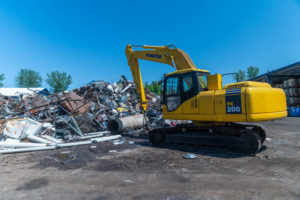 In the United States alone, scrap metal recycling is estimated to generate over $26 billion in revenue by 2020. You can earn some of that cash when you recycle scrap metal generated by your business.
In the United States alone, scrap metal recycling is estimated to generate over $26 billion in revenue by 2020. You can earn some of that cash when you recycle scrap metal generated by your business.
There are some types of scrap that are more valuable than others, but recycling scrap metal is always worthwhile. The recycling of old metals dramatically reduces the use of new materials, so it’s a simple way to implement sustainability. It’s also an easy way to make money if you recycle scrap metal.
Scrap metal is separated into ferrous and non-ferrous components
Your scrap metal’s iron content will determine how much you receive. In contrast to non-ferrous metal, ferrous metal is less valuable since it’s made with iron. Iron, steel, and wrought iron are ferrous metals.
Magnets are attracted to ferrous metals because of their iron content. Using a refrigerator magnet, you can determine whether a metal is ferrous. Sorting scrap metal into categories is really easy with this. The recycler may not require you to separate ferrous metal from non-ferrous metal, but we recommend you do it anyway.
The reasons for this are several. If you have a lot of mixed metal, separating your scrap makes things easier for your recycler. Sorting your scrap can also increase its value. If a recycler receives a container of mixed scrap, they’ll typically pay the lowest price for the cheapest metal. If you want to ensure that you get the best price for your non-ferrous metal, segregate it from your ferrous metal.
Recycling Scrap Metal
Metal scrap prices fluctuate according to supply and demand as well as fuel prices. Occasionally, prices change from day to day or even several times in one day. Because of that, it’s difficult to estimate exactly how much you’ll get for your scrap until the day of recycling. Recyclers generally pay the most for three types of scrap metal.
- Metals such as copper are always worth recycling, selling for more than $2 per pound. Scrappers value copper because it is infinitely recyclable, and recycling existing copper is significantly more cost-effective than mining new copper. Copper is also highly versatile, so it’s in high demand in many industries, including construction and technology. A new copper piece is reddish gold, but it can become darker brown if it is old, or even greenish if it has oxidized.
- Brass is an alloy of copper and zinc that is used for many purposes, from pipes and tools to handles and bathroom fixtures. Brass is typically yellower than copper, but copper is often more red. Pounds of brass are worth less than pounds of copper. Brass, however, is dense, so it may be your most profitable metal if you have a lot of scrap it.
- Those of you who have recycled aluminum cans know that this metal can be recycled for cash. Among the usual things made from aluminum are ladders, gutters, appliances, ladders, outdoor furniture and exterior doors. Because of its softness, silver aluminum is less likely to stick to a magnet than silver steel, so it makes it easier to separate the two.
Scrap metals such as aluminum, copper, and brass need to be recycled. Besides metals like steel, cast iron, lead, tin, nickel, and nickel alloys, commercial scrappers accept many other types too. Car bodies or converters can be recycled for a profit. In the case of scrap that is less common, you should ask your recycler for specific guidance.
- If your business generates scrap metal of any kind, we know you might find it stressful. You also need to handle your scrap. We can help you figure out what kind of scrap you have, and/or make a site visit to establish a system for sorting and containing your metal. All metals we recycle are paid competitive rates.
Whenever you work with us, you can recycle your scrap. You can rely on us to make this process simple and profitable for you. Please don’t hesitate to contact us if you have any questions about scrap metal recycling. Reach out to us today!

